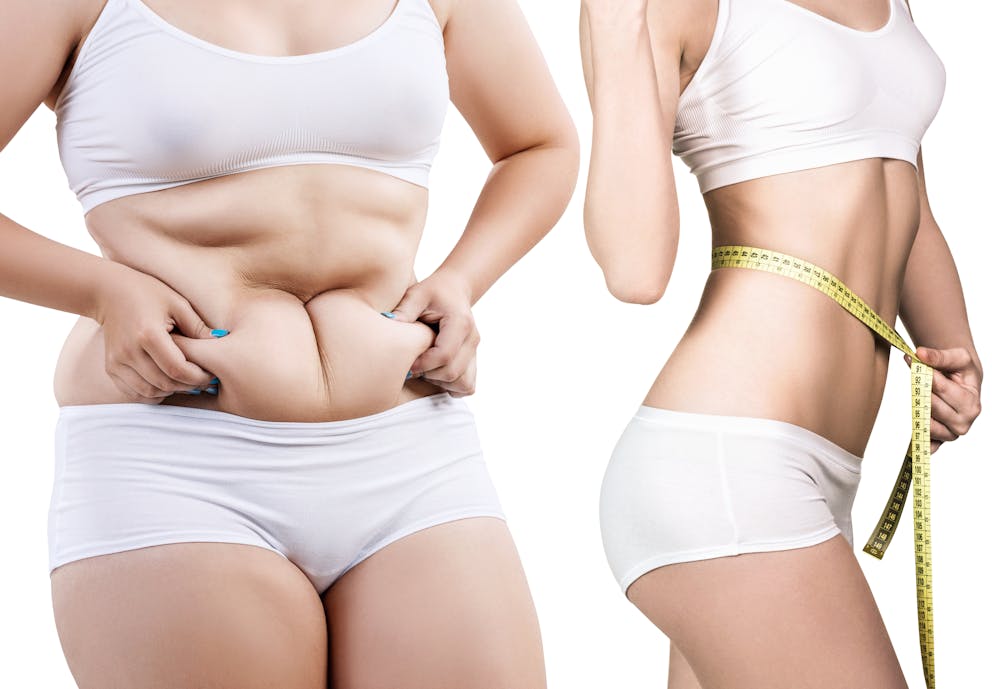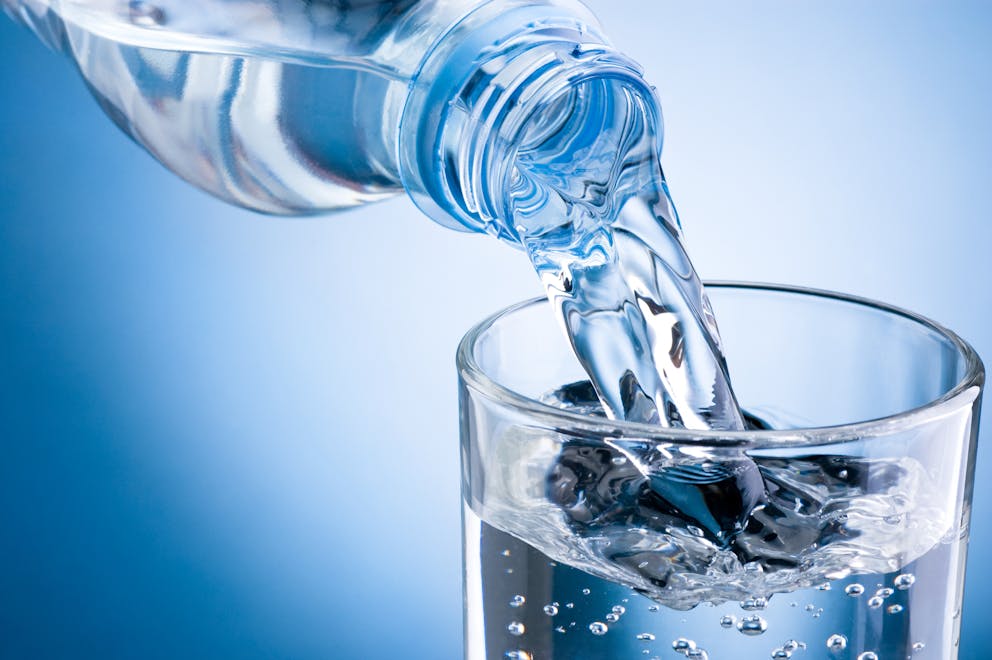Avoid These Big Mistakes When Drinking Water
Avoid These Big Mistakes When Drinking Water
Water. It's the essence of life, yet surrounded by a whirlpool of myths and half-truths that leave many confused. How much should we drink? Is it truly effective in shedding pounds, or is this another widespread misconception we've bought into?
And what about tap water—is it safe, or are we sipping on a cocktail of contaminants?
Debunking Hydration Myths is more than just setting the record straight; it explores our most fundamental resource and its impact on human health. With every sip, countless variables come into play—body size, activity level, and even your climate.
Yet, hydration advice became as murky as a stagnant pond somewhere along the line. We've been told to guzzle eight glasses daily like clockwork—or risk dire consequences. But let's pause for a moment. The truth? It might surprise you.
In reality, our bodies are finely tuned machines with built-in sensors alerting us when to drink—hello, thirst! Yet, society insists on pushing the idea that we must constantly hydrate beyond these natural signals.
It's crucial to listen to your body and drink water when you're thirsty, not just because a chart says so. Letting our innate thirst guide us is more beneficial than adhering strictly to prescribed amounts.
Debunking Hydration Myths
The world's entire of myths about hydration. Let's bust them wide open. Hollywood's got us thinking we must chug gallons of water daily to survive. Not true.
Understanding Thirst and Hydration
Your body is pretty intelligent. When you're thirsty, it's telling you to drink—simple as that. A few exceptions exist, like if you have certain health conditions or are on a low-salt diet. But for most of us, thirst is a reliable indicator of when to hydrate.
The True Meaning Behind Urine Color
Want a quick way to check your hydration levels? Look at your pee. You're good to go if it's a pale straw color or light yellow. Dark yellow or amber? It's time to drink up.

Water's Impact on Weight Loss
Sorry to burst your bubble. Water alone won't melt away the pounds. It's not some magic weight loss elixir. However, swapping sugary drinks for water can help with weight management.
One study found that replacing just one sugary beverage daily with water led to significant weight loss.
Electrolytes Are Key to Proper Hydration
Chugging plain water isn't enough. To keep your system humming, it's not just about water; tossing in a bit of sodium is also crucial.
Without enough electrolytes, you risk hyponatremia, a dangerous condition where your blood sodium levels get too low. Sprinkling sea salt into your water might be the trick to maintaining equilibrium.
So don't believe the hype. Stay hydrated, but do it smartly. Listen to your body, watch your pee, and don't forget the electrolytes.
Special Considerations for Water Intake
Your body's hydration needs are as unique as you are. Factors like activity level, diet, and even the weather can all impact how much water you should drink.
Let's explore some unique situations that might require adjusting your fluid intake.
Adjusting Fluid Intake for Activities and Weather
When you're physically active, your body loses water through sweat. The hotter the weather, the more you'll sweat. And the more you sweat, the more water you'll need to replace.
A good rule of thumb is to drink an extra 12 ounces of water every 30 minutes of exercise. But you may need even more if you're working out in hot weather or at a high intensity.
Pay attention to your thirst and the color of your urine. If you're feeling thirsty or your urine is dark yellow, it's time to drink more water.
Dietary Additions for Kidney Health
What you eat can also impact your hydration needs. Some foods, like fruits and vegetables, naturally contain a lot of water. Others, like salty snacks, can contribute to dehydration.
Adding a little baking soda or lemon to your water may help if you're prone to kidney stones. Baking soda can help neutralize acid in your urine, while lemon juice can increase citrate levels.
Incorporating baking soda or lemon into your water mitigates acid in your urine and boosts citrate concentrations, thereby guarding against kidney stones.
Just be sure not to overdo it. Excessive consumption of baking soda might result in uncomfortable symptoms such as flatulence and abdominal distension.
And while a slice of lemon in your water is fine, drinking large amounts of lemon juice can actually erode your tooth enamel.
The Keto Diet and Hydration
If you're following a low-carb or ketogenic diet, you may need to pay extra attention to your hydration. When you cut carbs, your body loses water and stored carbohydrates.
This can lead to dehydration and electrolyte imbalances, especially in the first few weeks of the diet. To counteract this, aim to drink even more water than usual and consider adding an electrolyte supplement or extra salt to your food.
Just be careful not to overdo it on the salt. While sodium is an essential electrolyte, too much can be harmful, especially if you have high blood pressure or other health conditions.
Aim for a balance between water and electrolytes to keep your body properly hydrated on a keto diet. Awareness of this equilibrium is critical to reaping the diet's rewards without adversely affecting your well-being.
Misconceptions About Water's Role in Detoxification and Kidney Health
Profit-driven, uncaring, demoralized, zero-empathetic companies perpetuate a big lie. The truth about water's role in detoxification and kidney health is far from what they'd have us believe.
Contrary to the doomsday scenarios often depicted, water's role isn't about single-handedly flushing out toxins and purifying our kidneys. In our day-to-day existence, water quietly plays a supportive role that often slips under the radar.

The Truth About Water and Toxins
Water subtly transforms our everyday experiences, from making chores more manageable to significantly enriching the quality of our lives. But can it effectively flush out fat-soluble toxins from the body all on its own?
The answer is no. Water quietly works behind the scenes, making things easier for us. But when it comes to eliminating fat-soluble toxins, it needs some help.
How Food Contributes to Hydration
Think vegetables and meat; they're great examples of how food serves to hydrate us. Studies show that solid foods consume 20-30% of our daily water intake.
This is possible. This is freedom. This is lasting hydration, and this is hydration I love to have.
Understanding Kidney Function Beyond Hydration
You've heard me say this "kidney health" message for a LONG time from Dr. Berg. Today, my vision at Dr. Berg has evolved.
Thanks to new research acquiring my attention and the expanded vision I've now been given full liberty to run with, we go from one (me) to many, inviting you into my all-new tribe of Kidney Health Enthusiasts.
I put all my cards on the kidney function table because that's how much I believe in understanding it beyond just hydration. The story of that transition is here.
Along with the relaunch of our new understanding, a whole host of new offerings just went live. I'm thrilled to share that our kidneys filter blood efficiently without needing excess water for "purification."
100% automated streams of blood filtration; kidneys that love the experience in a beautiful body you own and manage.
Where you've removed the misconception and have 100,000s nephrons working seamlessly for your health, this breakthrough signifies more than just medical advancement; it's about reclaiming control over one’s well-being with technology at its heart.
Conclusion
Together, we navigated the murky waters of hydration lore, dispelling semi-truths and illuminating essential truths about our relationship with water.
The journey has shown us that listening to our bodies trumps any rigid rulebook—our thirst isn't just a suggestion; it's a finely tuned guide.
We learned that urine color speaks volumes about our hydration levels, but chugging water alone won't magically melt away pounds or detoxify our systems.
We dove into how specific situations call for adjusting our fluid intake and discovered that even what we eat plays a role in keeping us hydrated. Who knew electrolytes and baking soda could be game-changers for our health?
Delving into this investigation was akin to peeling back veils of misunderstanding, revealing insights that felt almost clandestine. But understanding hydration is more than an academic exercise—it is about embracing wellness with open arms.
Every myth busted brought us closer to realizing how simple yet intricate maintaining proper hydration can be. It’s not about fear-mongering or following outdated advice blindly; it’s about making informed choices based on what your body tells you.
Remember, hydrating right is less about following strict guidelines and more about tuning into your own needs. So let this knowledge empower you—not as rules set in stone but as insights tailored uniquely to you.
Previous blog
The TOP Remedies for OCD (Obsessive Compulsive Disorder)Tags

Popular
08/21/2024
55.9K views
02/23/2025
46.9K views
11/18/2024
282K views
03/18/2024
11/21/2022




